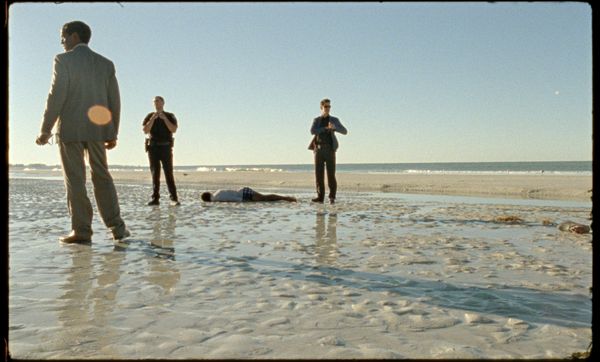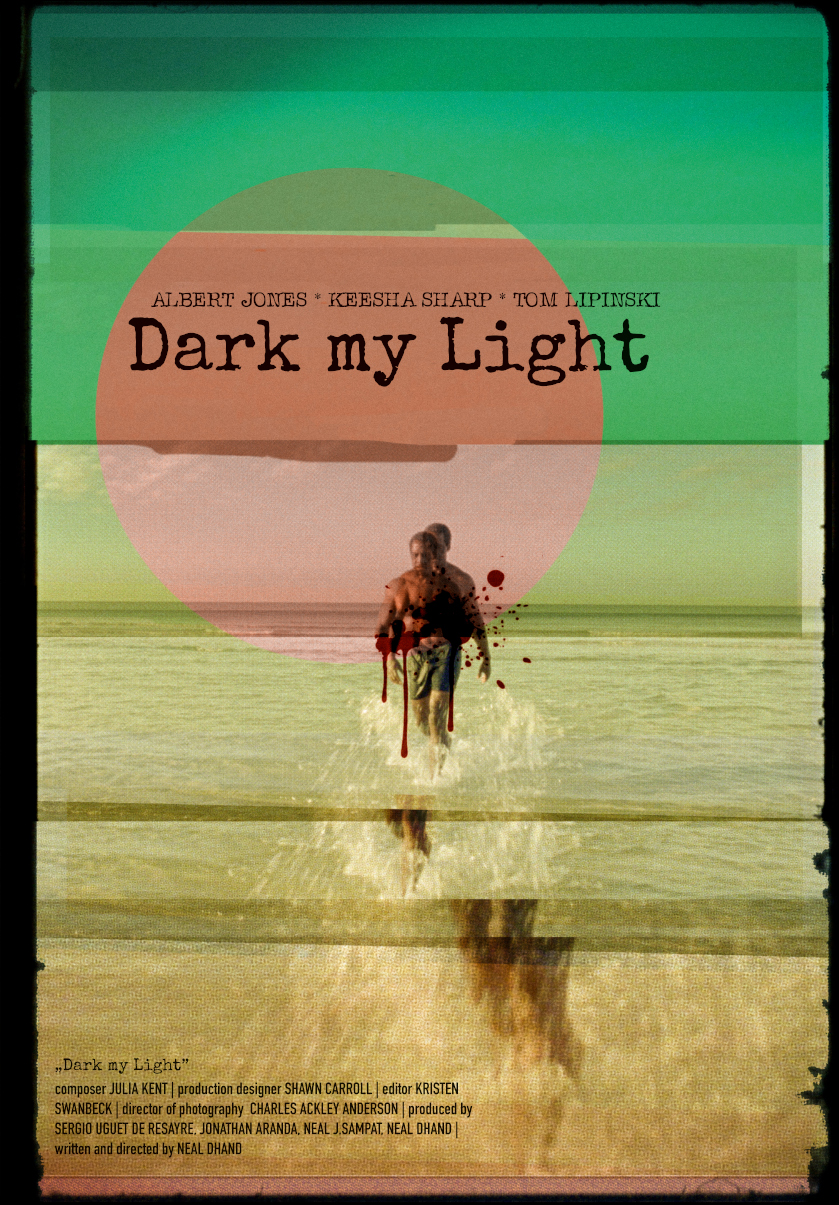Eye For Film >> Movies >> Dark My Light (2023) Film Review
Dark My Light
Reviewed by: Jennie Kermode

There are some filmmakers who stamp their personality on their work from the outset. With a distinctive blend of horror and humour present in Neal Dhand’s dialogue and shot choices, together with the grainy character and soft hues of Charles Ackley Anderson’s cinematography, Dark My Light announces itself quickly, sets out its stall, and proceeds to deliver a story which, though it shifts gears several times and moves between genres, still achieves a tonal consistency which helps it stick in the memory.
There’s a scream – perhaps roar would be a better term – over the opening credits which is reminiscent of one delivered by Ray Wise in Twin Peaks, and viewers familiar with that will find themselves shuddering. Others may not fully take it in, or may be confused by it, because it doesn’t seem to fit the character of police detective Mitchell Morse (Albert Jones).

In his dress and manner, Morse seems as if he would be right at home in a procedural. We see him called into the superintendent’s office, where he’s assigned to the case of a serial killer who is stalking the nearby beach. A severed human foot is found there, and a corpse, but they don’t match. Morse is assigned a new partner, Dreyfus (Tom Lipinski), who is rumoured to have been dismissed from his previous job after committing a sexual offence. With this in mind, we can understand when Morse seems uncomfortable about the easy bond which develops between Dreyfus and his wife, Emily (Keesha Sharp) – but all is not as it seems.
Morse and Emily are separated, but they seem to understand the arrangement differently. “How can I tell if I really love you if you’re here all the time?” she complains. There still seems to be some attraction between them, but for her, that’s not enough. She gives the impression of having been let down time after time, whilst he is trying, time after time, to make her his again – and he’s missed something fundamental there which, in his obsession, he’s unable to recognise.
When the film shifts, it does so abruptly, with a shocking incident which will leave viewers reeling. Some will not recover. Dhand takes his time to clarify what’s going on and doesn’t really give us enough to hold onto in the meantime – Jones’ performance being good but cold, appropriately for his character, not letting many emotions show until the end. Not everybody will have the patience to stick with it.
Though it plays around with science fiction and finds wry humour in reflecting elements of the procedural, this is ultimately a film about something more fundamental to human experience, about the desire for control and fear of accepting the limitations of one’s agency in a universe which has more going on than just order versus chaos. It needs to be tighter and give its audience more to hold onto, but it has some strong moments and has earned its place at Fantaspoa 2024. It’s also a visual treat.
Reviewed on: 21 Apr 2024















